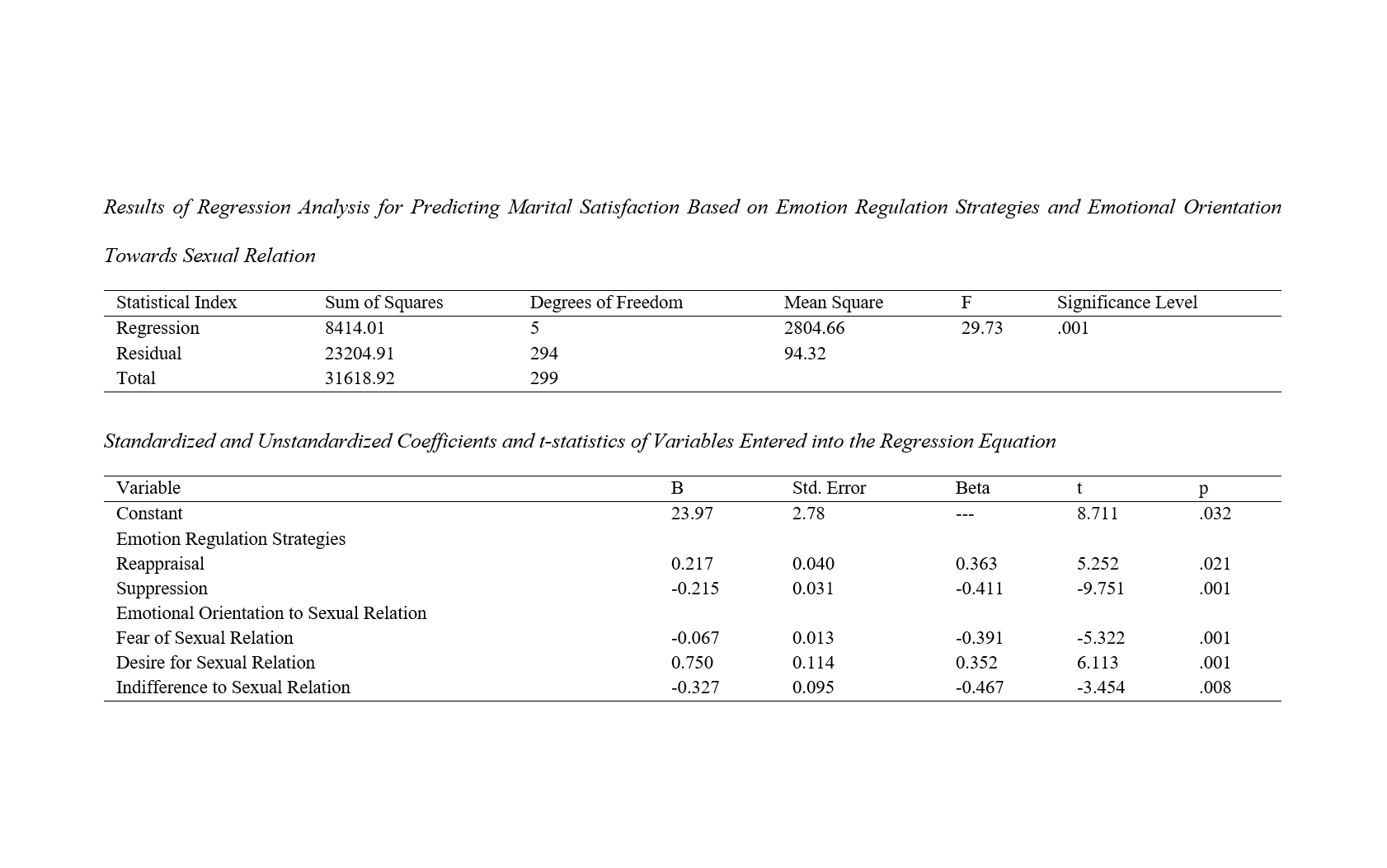Predicting Marital Satisfaction Based on Emotion Regulation Strategies and Emotional Orientation Towards Sexual Relation in Married Women
Keywords:
marital satisfaction, emotion regulation strategies, emotional orientation, sexual relationAbstract
Objective: The aim of this study was to predict marital satisfaction based on emotion regulation strategies and emotional orientation towards sexual relation in married women.
Methods and Materials: This research was descriptive-correlational in nature. The population of this study comprised married students from the Islamic Azad University of Tehran during the 2022-2023 academic year. From this population, 300 individuals were selected using convenience sampling. The data collection tools included the Marital Satisfaction Questionnaire by Hudson (1992), the Emotion Regulation Questionnaire by Gross and John (2003), and the Emotional Orientation Towards Sexual Relation Questionnaire by Ali Abadian and Hasanzadeh (2017). Data were analyzed using multivariate regression tests and SPSS software version 26.
Findings: The results showed that there is a positive correlation between reappraisal and sexual desire with marital satisfaction, and a negative significant correlation between suppression, fear of sexual intimacy, and indifference towards sexual intimacy with marital satisfaction (p<0.05). Additionally, emotion regulation strategies (reappraisal and suppression) and subscales of emotional orientation towards sexual relation (desire, fear, and indifference) can predict marital satisfaction (p<0.05).
Conclusion: Given the results of the study, it is suggested that due to the importance of emotion regulation strategies and sexual desire in improving marital satisfaction, emotional orientation towards sexual relation should be taught to married individuals through workshops. Moreover, educating individuals on emotion regulation can enhance marital satisfaction.
Downloads

Downloads
Additional Files
Published
Submitted
Revised
Accepted
Issue
Section
License
Copyright (c) 2024 Saeideh Obodiat (Author); Ramezan Hassanzadeh (Corresponding Author); Bahram Mirzaian (Author)

This work is licensed under a Creative Commons Attribution-NonCommercial 4.0 International License.









